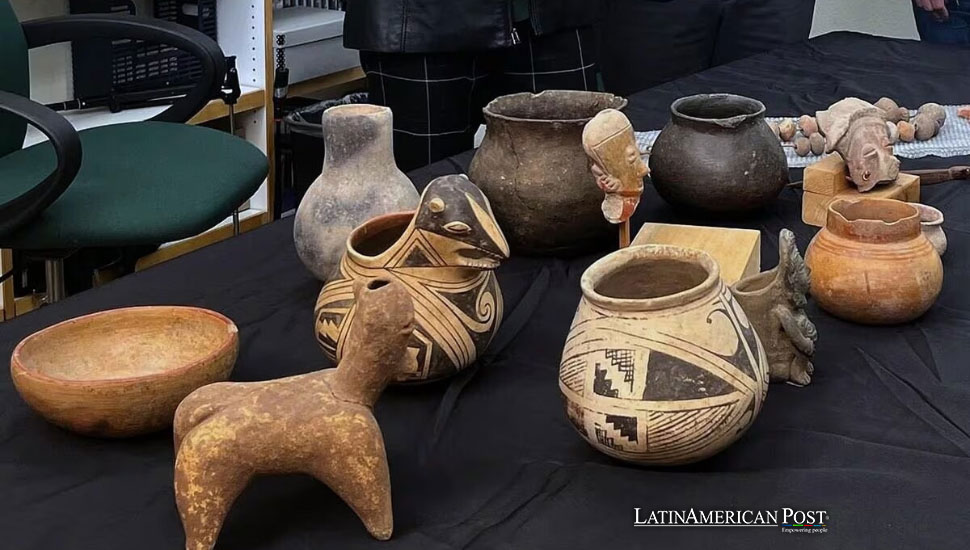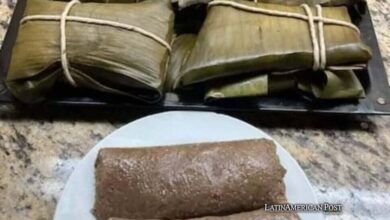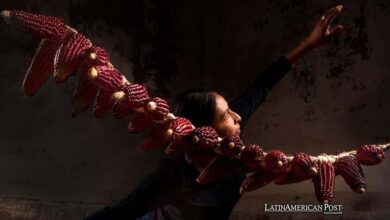Cultural Heritage at Stake as Mexico Battles Auctions

“Mexico condemns the scheduled auction in the U.S. of 20 pre-Hispanic artifacts, highlighting the ongoing struggle against the illicit trade of cultural goods, reflecting a broader Latin American effort to reclaim heritage and combat cultural dispossession.”
The Controversy Unveiled
The impending auction in Louisville, Colorado, where 20 pre-Hispanic artifacts from Mexico are set to be sold, has sparked significant controversy and condemnation from the Mexican government. This event has brought to the forefront the enduring battle against the illicit trade of cultural heritage, a concern that resonates deeply across Latin America.
Mexico’s Secretaría de Cultura and the Instituto Nacional de Antropología e Historia (INAH) have vehemently opposed the auction. Their investigations confirmed that the artifacts, including Maya and Teotihuacan pieces and ceramics from northern, western, and Gulf regions of Mexico, are indeed significant archaeological treasures protected under national laws.
The collection up for auction spans an extensive historical range from the Preclassic (600 BC-200 AD) to the Postclassic (1200-1500 AD) Mesoamerican periods, embodying the rich tapestry of Mexico’s ancient civilizations. These objects, from zoomorphic figurines to intricately designed pottery and stone-incrusted mirrors, are not merely artifacts but narrators of millennia-old stories and traditions.
Mexico’s proactive stance includes judicial and diplomatic efforts to repatriate these objects. The case underscores a broader narrative in Latin America, where countries like Peru, Guatemala, and Colombia face similar challenges, striving to recover their stolen heritage from international markets.
A Global Issue Unveiled
The sale of these Mexican artifacts is not an isolated incident but part of a more significant global issue of cultural heritage trafficking. It poses ethical and legal questions about commercializing cultural assets acquired through dubious means. Mexico’s efforts to halt such auctions in cities like New York, Paris, and Rome reflect a commitment to safeguarding its cultural legacy.
The Secretaría de Cultura’s plea to the auction house to reconsider the sale emphasizes the significance of these artifacts as the collective memory and identity of Mexico’s indigenous peoples. This action is aligned with Mexico’s broader campaign to protect its cultural patrimony, having successfully repatriated approximately 13,500 cultural items under President Andrés Manuel López Obrador’s administration.
This ongoing struggle against cultural dispossession has catalyzed international dialogue on ethical practices in art and artifact sales. Latin American nations are increasingly vocal in global forums, advocating for the return of culturally significant items and the need for stringent regulations to prevent illicit trafficking.
The situation in Mexico is emblematic of a larger Latin American narrative where historical artifacts continue to be coveted items in the global antiquities market. This demand often leads to the plundering of archaeological sites and the loss of invaluable cultural heritage. Countries across the region are now banding together, sharing strategies, and reinforcing international cooperation to address this pervasive issue.
Asserting Rights Over Cultural Assets
Mexico’s legal and diplomatic maneuvers to reclaim its cultural treasures are part of a growing trend in Latin America, where nations assert their rights over their historical and cultural assets. These efforts aim to retrieve stolen artifacts and preserve the integrity and identity of the region’s rich cultural history.
The upcoming auction in Colorado is a stark reminder of the complex interplay between cultural heritage, national identity, and international law. It highlights the need for global cooperation and ethical standards in handling artifacts that embody nations’ historical and artistic essence.
Also read: Mexico Opens New Museum at Chichén Itzá, Showcasing Maya Civilization
Mexico’s stance against the auction of its pre-Hispanic artifacts is a testament to the country’s, and indeed Latin America’s, resolve to protect and preserve its cultural heritage. This battle goes beyond mere repatriation; it’s about recognizing and respecting the historical and cultural narratives these artifacts represent, ensuring they remain a source of pride and identity for the people they rightfully belong to.





